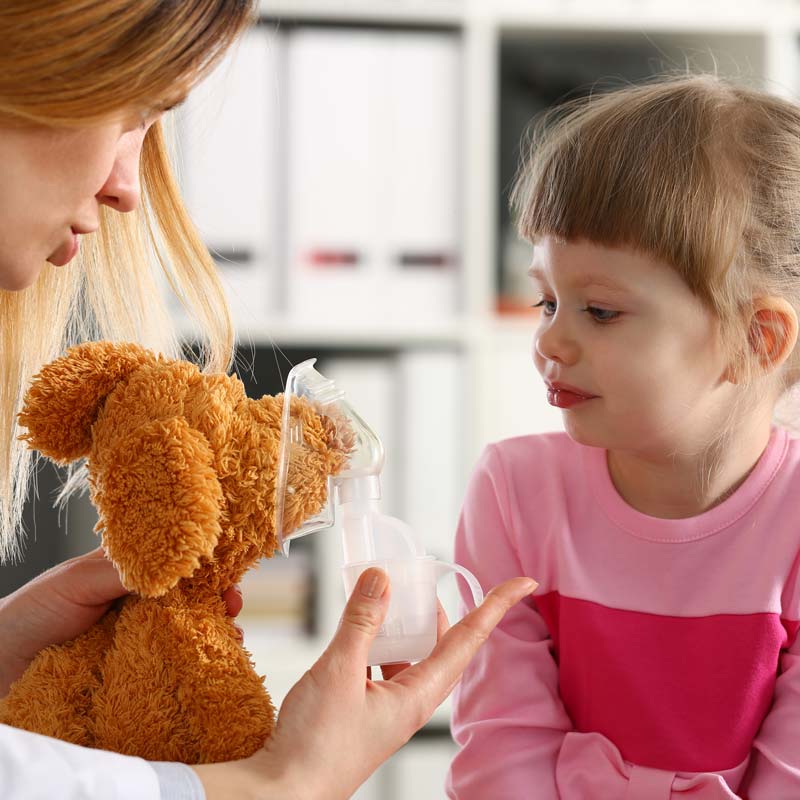The AboutAsthma.org website is a guide for asthma patients that provides general information for educational purposes only. It is mainly addressed to asthma patients and carers.
The contents of this website do not substitute professional healthcare advice and should not be used as a guide for diagnosis or treatment of any health problem or disease. Patients should always consult a doctor or another healthcare provider for medical advice or information about asthma diagnosis and treatment.
The European Federation of Allergy and Airways Diseases Patients’ Associations (EFA) is the author and editor of this website. The author has generated patient-related information to the best of its ability, after reviewing the Global Initiative for Asthma (GINA) 2022 Strategy Report that is addressed to health professionals, and other scientific resources. EFA has used the GINA 2022 Strategy Report as a basis to develop this guide, which is intended for general information on asthma management for non-clinicians. GINA is not responsible for the accuracy of the content herein.
The information contained in this website should be considered general advice. Health systems, the availability of medicines and prescribing regulations vary among countries. For information about asthma care in their countries, patients and carers should look for local resources. Check with your healthcare provider or with your local asthma patients’ association.
About the “GUIDE Asthma” project
Asthma control remains relatively poor in Europe and across the world, and patients do not always have access to accurate educational resources to support them in managing their condition.
According to a patients’ survey conducted by EFA in 2019, one in three asthma and chronic obstructive pulmonary disease (COPD) patients in Europe do not feel involved in decisions about their therapy and they often feel they have not been given personalised tools to be able to self-manage their disease. A total of 20% of the asthma patients surveyed stated that they have “never heard about” written asthma self-management plans.
An internal survey, conducted by EFA in 2022 among the EFA asthma community, confirmed that in most countries there are no educational materials for asthma patients or, if there is, it is not easily accessible.
To close the gap, in 2023 the European Federation of Allergy and Airways Diseases Patients’ Associations (EFA) launched the “About Asthma” website, to provide asthma patients and carers with a source of reliable and easily understandable information that they can access whenever they want.
Acknowledgements
The AboutAsthma.org website has been developed in the framework of the EFA’s 2023 GUIDE Asthma Project. EFA is thankful to its sustainable corporate partners Astra Zeneca, Chiesi and OM Pharma for their unrestricted education grants that made this project possible.
The website’s updates and new sections are part of the EFA 2024 About Asthma Project. EFA is thankful to its sustainable corporate partners AstraZeneca and Sanofi/Regeneron Alliance for their unrestricted grants that made these updates possible.
EFA thanks Prof. Dr. Helen Reddel, for reading a draft of the content of the patient guide and for providing advice relevant to accuracy of medical statements.
EFA thanks the members of its Asthma and Allergy Working Group for providing insights throughout this project.
The website has been published in collaboration with the Global Allergy and Airways Patients Platform (GAAPP).
EFA thanks the authors of the educational content on the website – Daniela Finizio, Roberta Fabiani from Scientific Communication srl, for their contribution to making information about asthma accessible and comprehensive for patients.
About national and international clinical guidelines for asthma
Clinical practice guidelines are a collection of information on a specific disease or condition and are intended to provide evidence-based medical recommendations for health professionals on how to diagnose, manage and treat a specific disease.
The Global Initiative for Asthma (GINA) is an independent international organisation that publishes a report for health professionals with a global strategy for asthma prevention and treatment. The GINA Strategy Report is updated yearly, based on the best available research evidence. The GINA Report is not a guideline, because it must be adapted to the local health system and local medication availability and regulatory approvals.
Many countries have developed their own national guidelines about diagnosing and treating asthma. These guidelines provide health professionals with recommendations that are suited to the country’s health system, medication availability and costs. Your doctor can tell you which asthma guidelines are relevant to your country.
Collaboration between healthcare providers, researchers and patients to improve knowledge on asthma
A close collaboration between patients, healthcare providers and researchers is crucial for the growth of clinical evidence on asthma management. Indeed, thanks to the constant collaboration with patients, researchers can collect and analyse data from the experiences of real life patients. Furthermore, patients who agree to participate in clinical studies to test the efficacy of new or existing treatments enable science to progress for the benefit of all patients with asthma.

